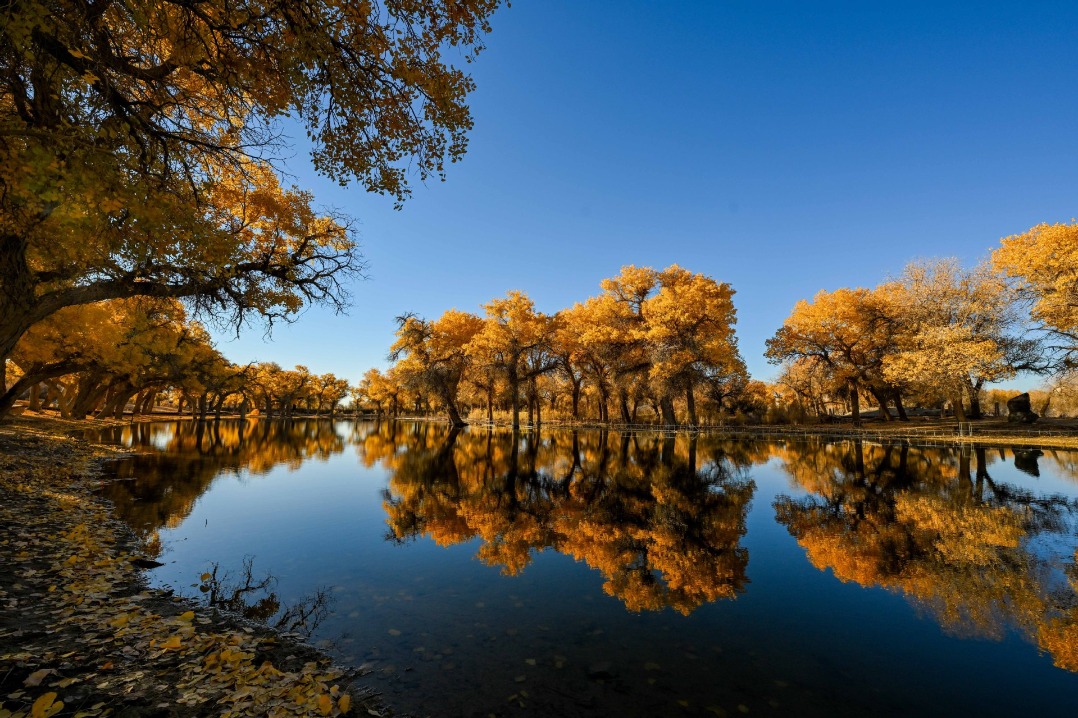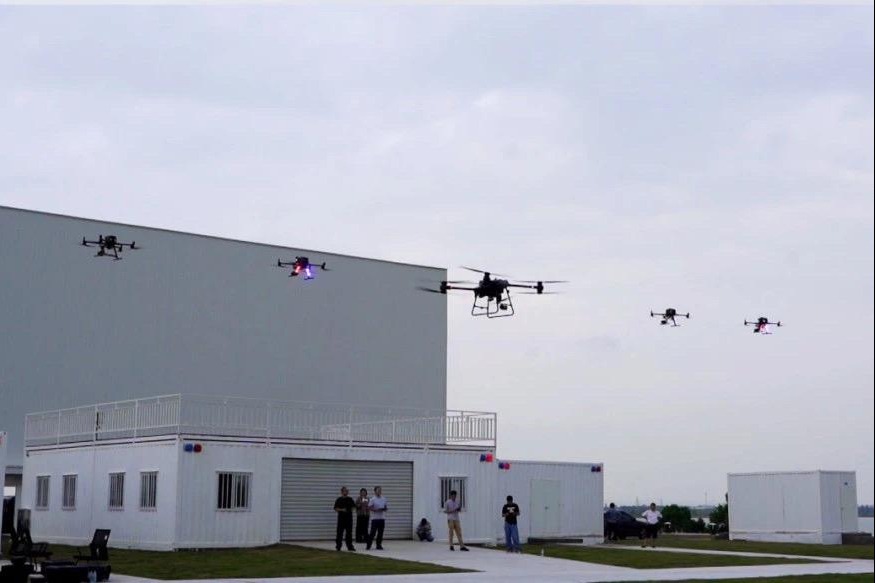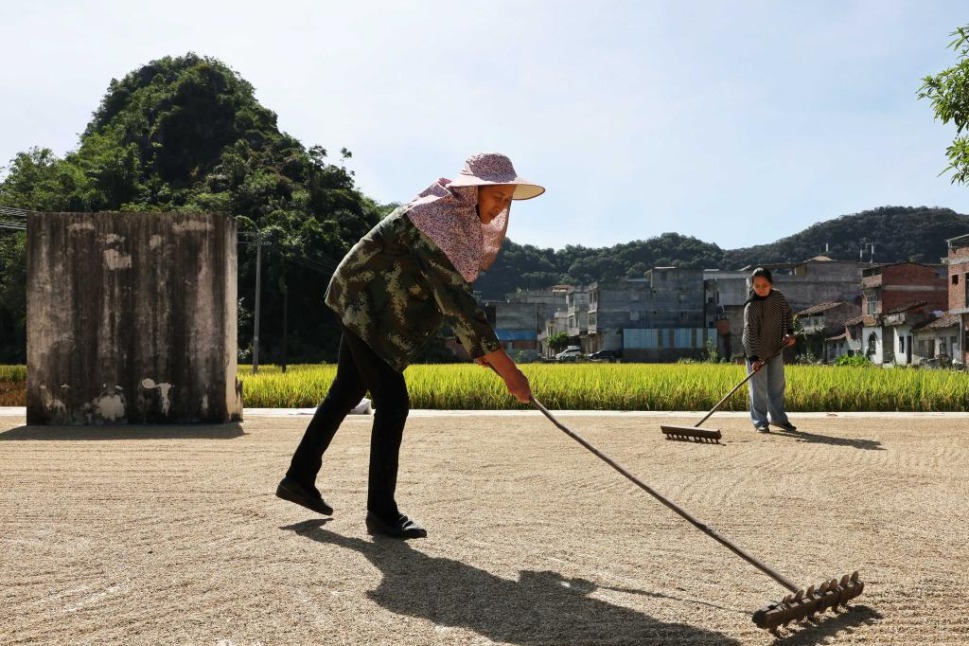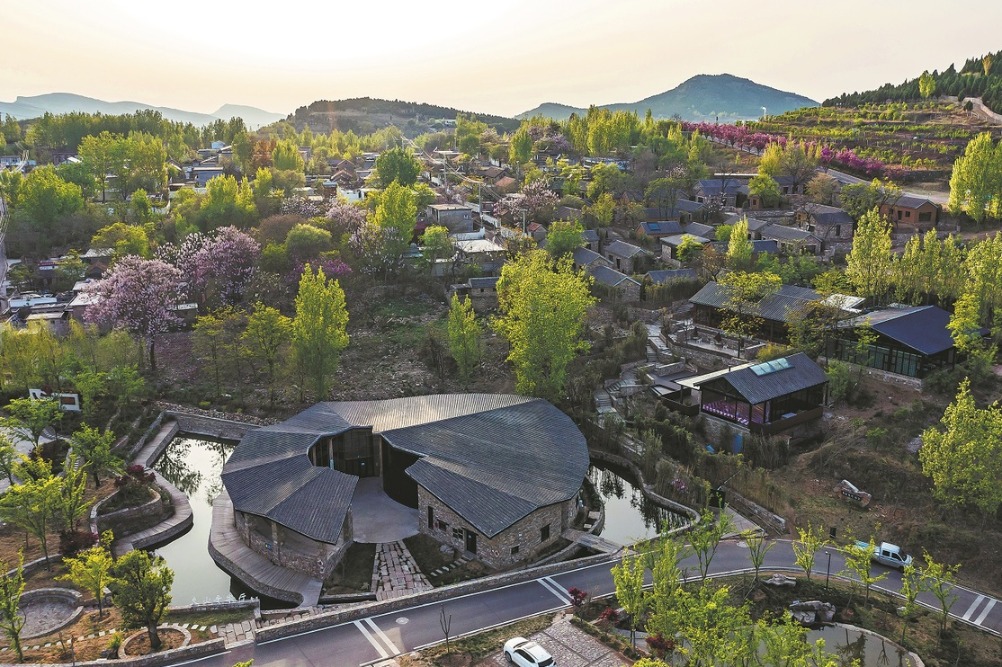Art troupe performs for remote herdsmen

Bayanbaatar was born and grew up in a small village of Wenquan county, Bortala Mongolian autonomous prefecture, in the Xinjiang Uygur autonomous region.
He loved music as a child and one of his favorite things to do was watch performances by the county's Ulan Muqir troupe, or Red Bud Troupe.
The troupe travels from one site to another, performing for herdsmen who live in some of China's remotest areas.
"They traveled in trucks and usually performed for about two hours with songs, dance pieces and musical instruments. I loved singing very much as a child and I dreamed about becoming one of them one day," says Bayanbaatar, a member of the Mongolian ethnic group.
Now, the 42-year-old is the leader of the Ulan Muqir troupe of Wenquan county, performing with some of those veteran artists who performed in his village.
"My childhood dream is fulfilled," he says.
The only Ulan Muqir troupe of Wenquan county, it consists of about 30 people, performs about 100 shows every year and keeps alive the tradition of performing in remote areas of the prefecture.
"Most of the performances are staged outdoors. The audience sits around the artists and usually joins in the shows with impromptu participation. Now, the conditions are much better as many places have small theaters, which allows us to perform indoors on cold winter days," says Bayanbaatar, who became a music teacher after graduating from a local school and joined in Ulan Muqir in 2005 when the troupe celebrated its 40th anniversary.
In 1957, the first Ulan Muqir troupe was founded in Sonid Right Banner, Inner Mongolia autonomous region, and was quickly well-received by the local people. Soon, many such troupes were established, bringing thousands of performances to remote areas.
According to Bayanbaatar, the artists of the Ulan Muqir of Wenquan mainly come from three ethnic groups: Mongolian, Kazak and Uygur.
"All of the members of the art troupe can sing, dance and play various musical instruments," says Bayanbaatar, adding that their average age is 25 years old. "They are very young and creative. They learn fast and love performing for the herdsmen."
The songs and the dance works are mostly based on the daily lives of local people. Besides giving performances, the troupe has also collected over 500 folk songs, especially ones closely linked to the pastoral way of life of the Mongolian nomads.
One of the members is 26-year-old Miao Tegaowa, who was born to a Han father and a Mongolian mother.
Miao and her younger sister learned to dance when they were children. Miao's grandfather often told her stories about the Ulan Muqir troupe of Wenquan since her grandfather often watched the troupe's performances.
"He told me that when he was a child, the troupe came to the village riding horses. With a few musical instruments, such as morin khuur, or horsehead fiddle and dombra (a long-necked lute with two strings), the artists performed under the blue sky," says Miao. "Whenever the troupe came to the village, my grandfather said that it was like a celebration."
Miao attended a local art school to study Mongolian folk dance and play accordion at the age of 12. At 16, she went to Beijing to further her study of Mongolian folk dance at Minzu University of China. In 2019, she joined the troupe as a dancer and accordion player.
"I can still remember the first time that I performed with the troupe. It was only a week after I joined and I was very nervous," recalls Miao. "When I arrived at the village, the audience was there already. When I started dancing on the grassland, they gave me warm applause, which made me relaxed.
"At the end of the show, a woman about 80 years old came to me and danced with me. She told me that she wanted to become a dancer when she was a child. It was a very touching moment," Miao says.
- International students envoys of Chinese culture
- CGTN documentary on fighting terrorism: Darkness over Urumqi
- Giant panda pair gifted to Hong Kong come out of quarantine
- Rural China becomes a hotspot for young people
- Global smart grid offers solutions to climate change, biodiversity loss
- Xi chairs CPC leadership meeting to review disciplinary inspection report





































